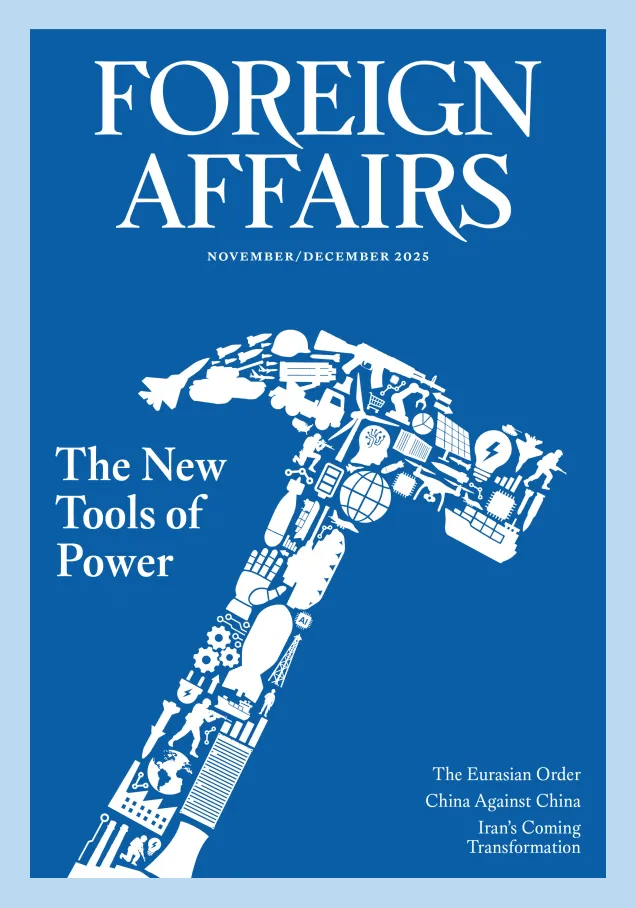
作者/Author(s): Jeffrey Prescott and Julian Gerwitz
網站來源/Source: Foreign Affairs
日期/Date: 09/29/2025
關鍵字/Keywords: 國際秩序、中國、美國
摘要:
北京正利用美國退出國際機構與孤立盟友的機會,鞏固自身在新興多極秩序中的核心地位。中國並未選擇正面挑戰美國,而是透過積極外交,在現有體系內累積實力、影響力與聲望。若中國的策略奏效,他們將一躍成為國際秩序的核心,而美國的全球影響力恐出現不可逆的衰退。
- 川普退出美國主導數十年的自由國際秩序,令其未來蒙上陰影。這也可能導致國際秩序變為重視交易的多極格局,各國追求的是短期利益,而非長期合作。
- 事到如今,許多外交政策專家仍低估了中國主導多邊機構與全球倡議的重要性,習近平似乎找到了能在權力過渡期間,不與美國正面衝突、卻能推動以中國為核心的全球秩序的方法。當川普重回保護主義、與多國領袖不合之際,中國則高舉「反對保護主義」的大旗,拉近中國與被美孤立的國家的關係,主張以多邊方式處理全球議題。更重要的是,習近平已經隱隱發出意圖,將獎勵那些敢於反美的國家。
- 中國如今積極塑造自己是國際秩序的守護者,而非破壞者。同時,習近平也推出多項新倡議,希望讓中國成為新秩序的核心。鑒於川普政府對聯合國的輕蔑態度,其他國家可能轉而支持中國在全球議題上的主張。中國更透過「三大全球倡議」加強與多數開發中國家的合作與夥伴關係。
- 美國若想在孤立盟友的同時積極爭奪在聯合國的影響力,純屬不切實際。然而,以中國為中心的國際秩序仍存在諸多不確定性,尤其是中國如何將雄心轉化為實際的全球重組。許多國家對中國在邊界與海域爭端中的強勢行徑早有戒心,持續審慎檢視中國,甚至可能抵制北京的強勢作為。這些障礙或許能為美國爭取時間,重振美國對全球領導權的雄心。
Summary:
Beijing is exploiting the US's withdrawal from international institutions and the isolation of its allies to consolidate its position as the pivot in the emerging multipolar order. Instead of challenging the US outright, China amassed its power, influence, and prestige within existing institutions through active diplomacy. If China succeeds, it will put it at the center of the international order while leaving US global influence to wane irreversibly.
- Trump's withdrawal from the decades-long US-led liberal international order cast its future into doubt. However, it is most likely a transactional multipolarity, in which countries seek short-term gains rather than fostering long-term cooperation.
- Until recently, foreign policy experts disregarded the importance of Chinese-led multilateral institutions and global initiatives. However, Xi may find an opportunity to advance a China-centric world without confronting the US directly amid the transition. When Trump barricaded the US from the world and quarreled with several world leaders, China promoted "resisting protectionism," fostered closer ties with those isolated by Trump, and advocated a multilateral approach to global issues. More importantly, Xi showed the tendency to reward those who stood up against the US.
- China now seeks to project the image of a defender of the international order rather than a disruptor. Furthermore, Xi also advanced new initiatives that put it at the center of the new order. Given the Trump administration's disdain for the UN, other countries may support China's propositions on global issues. China is also advancing its three global initiatives, increasing its partnerships with most developing countries.
- It is unrealistic for the US to compete with China's influence at the UN while simultaneously isolating its partners. However, there are many uncertainties in a Chinese-centric international order, especially the difficulty of translating its aspirations into a global realignment. Many countries are already wary of China's aggressiveness at disputed borders and waters and will be cautious about its motives, or ultimately resist Beijing. These obstacles could buy the US time to revitalize its ambition for global leadership.
